
Tips for Your Dumpster Rental Period

Dumpster Rental Tips From Delivery to Pickup
Renting a dumpster seems simple enough. Trash goes in the bin and we take it away. But if it's your first time working with a roll off dumpster, it helps to have some guidelines to ensure your rental goes off without a hitch. Make the most of your dumpster rental period with these essential tips, from how to load a dumpster to accepted materials and weight limits. We've compiled everything you need to know for a smooth experience.
How to Fill Your Dumpster
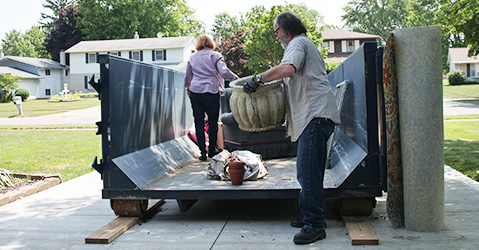
Open Your Dumpster Door to Walk Items Inside
Use the loading door to make filling your dumpster easy. Walk large, heavy items inside first and spread them evenly to distribute the weight. You can also roll items inside with your wheelbarrow.
Only Throw Away Accepted Materials
Knowing how to load a dumpster and what to fill it with are two different things. Throwing prohibited items in your bin raises safety and environmental issues and can damage your roll off dumpster. We’ll also charge you a disposal fee.
Can The Item Be Tossed? | Item |
|---|---|
| Always | Most household junk, construction debris and yard waste. |
| Sometimes | Items like electronics, appliances and mattresses, depending on local rules. |
| Never | Bulky items that could damage your bin or are prohibited by landfills. Includes refrigerators, hot water tanks, tires and hazardous waste. |
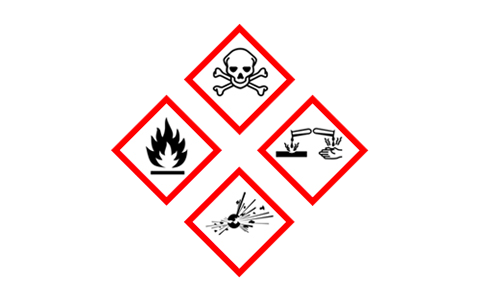
Hazardous Waste
Never toss anything hazardous in your dumpster. This includes any items that are flammable, corrosive, reactive or toxic. Read up on hazardous waste so you can fill your dumpster safely.
![]()
Keep Your Weight Limit in Mind
Weight limits vary depending on the size of the dumpster and your project type. Your bin’s weight limit is included in your quote. Take care to stay within the weight limit while loading your bin. If you go over the limit, you will have to pay an overage fee.
Avoid Going Over the Fill Line
You’ll also need to pay attention to how high you can fill your dumpster. Each bin has a fill line to use as a guide. If debris is higher than the dumpster’s rim or items are hanging over the sides, then our hauler can’t pick up the bin. If our driver is unable to remove the bin at pickup because it’s overfilled, you will receive a trip fee.
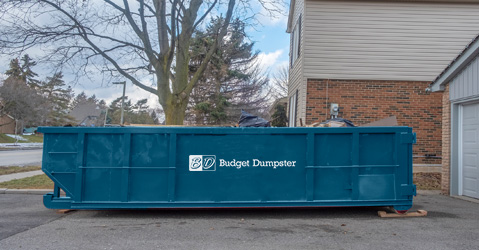
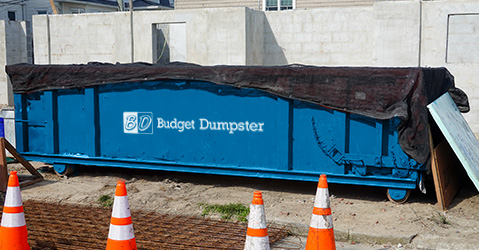
Cover Your Bin When Not in Use
When you’re not actively filling your dumpster, cover it with a tarp secured with bungee cords or straps. Covering your bin and shutting the dumpster door help prevent neighbors and passers-by from throwing in items. Not only could this add to your bin's overall weight, but you’ll also be charged a fee if they throw in prohibited items.
Bad Weather Tips
Expecting bad weather during your cleanup? Covering your bin with a tarp also prevents rain and snow from collecting in your dumpster and adding weight. Water and snow can soak absorbent materials like dirt and carpet, making them heavier. Additionally, you may be charged a fee if the items in your dumpster freeze together or if snow builds up around the outside of your bin. Be sure our driver has clear access to your dumpster before pickup.
Avoid Additional Fees
We offer low, flat rates for all our dumpster rentals. But extra fees can still occur if you don’t follow our rental period tips. We’ve already covered a few reasons you might get an extra fee, but check the list below for several others:
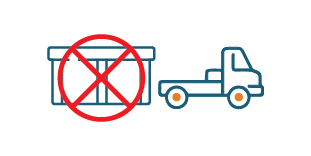
Dumpster can’t be delivered or picked up.
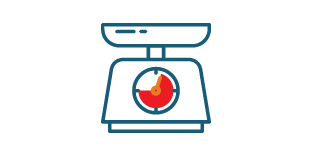
Dumpster is over the weight limit.
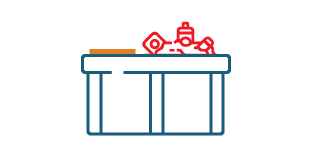
Dumpster isn't filled properly.
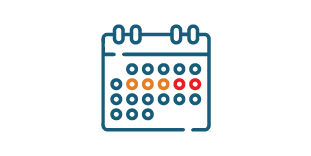
Dumpster pickup is after the rental period.
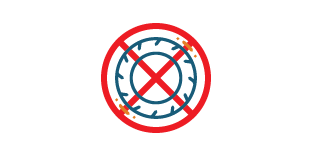
Dumpster contains prohibited items.
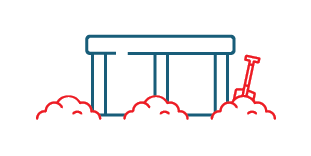
Dumpster needs to be dug or towed out of snow or mud.
Make sure to schedule your pickup before your rental period is over to avoid an extension fee. We'll email you reminders as you approach the end of your rental period.
Let Us Know if You Need More Time
Our generous rental periods typically give you enough time to complete your project. But we understand that things happen and you might need to keep your bin longer. If so, let us know right away. If possible, we may extend your rental period for a flat, daily rate.
Check Out More Steps in the Dumpster Rental Process
Order Another Dumpster
Need another roll off container? We’ll swap out your full bin for a new one.
Empty-and-Return ServiceGet Ready for Pickup
Fill out our quick online form when you’re finished, and we’ll haul away the mess.
Schedule a Pickup